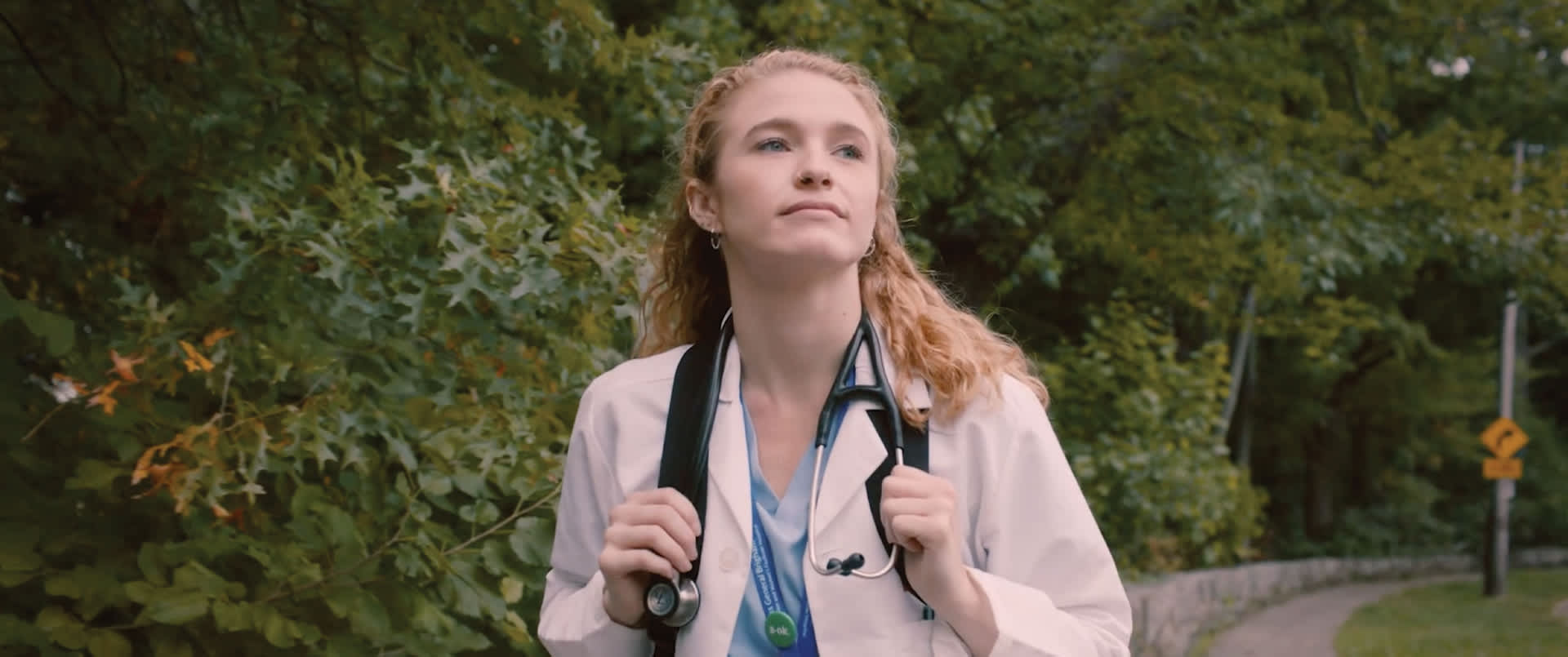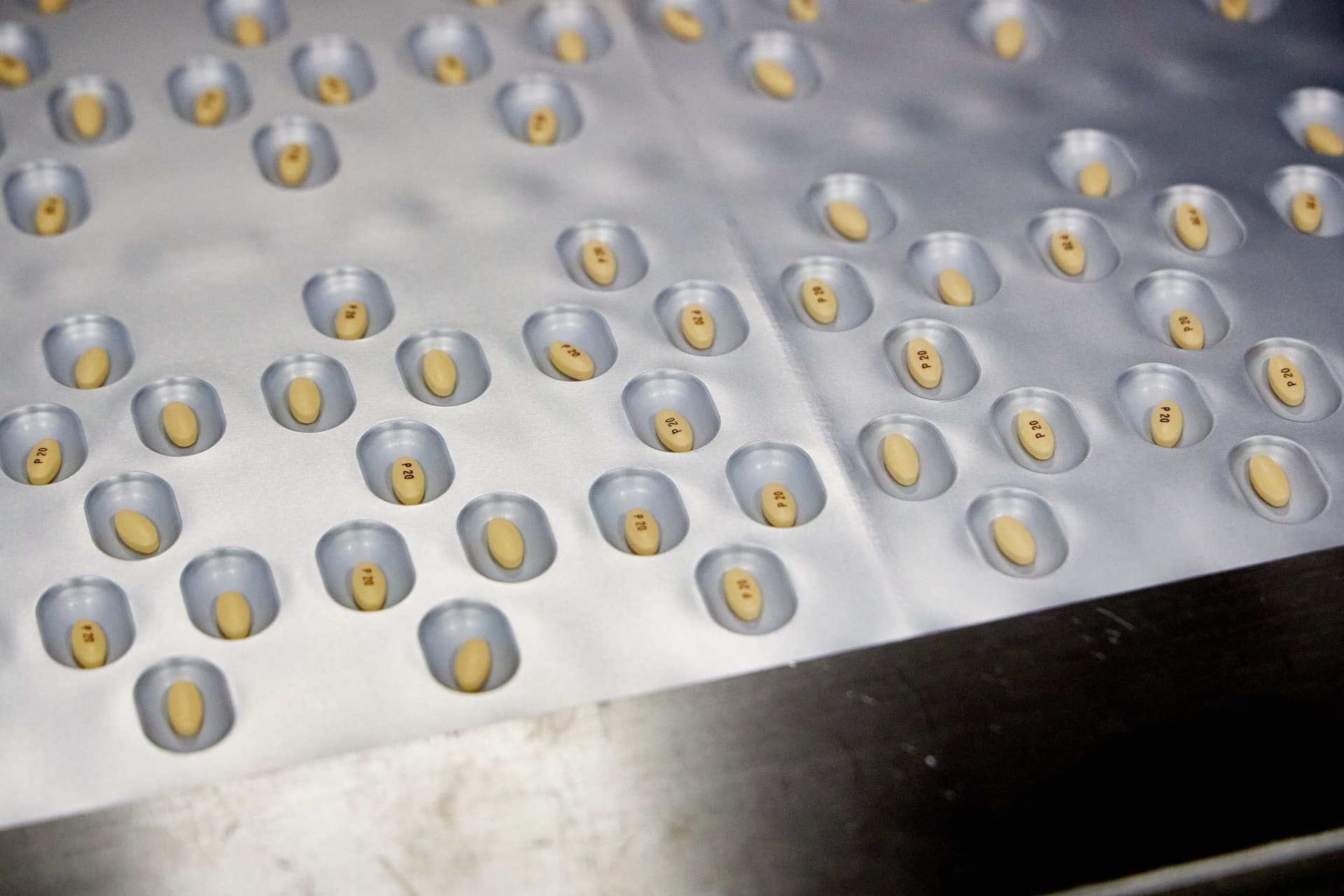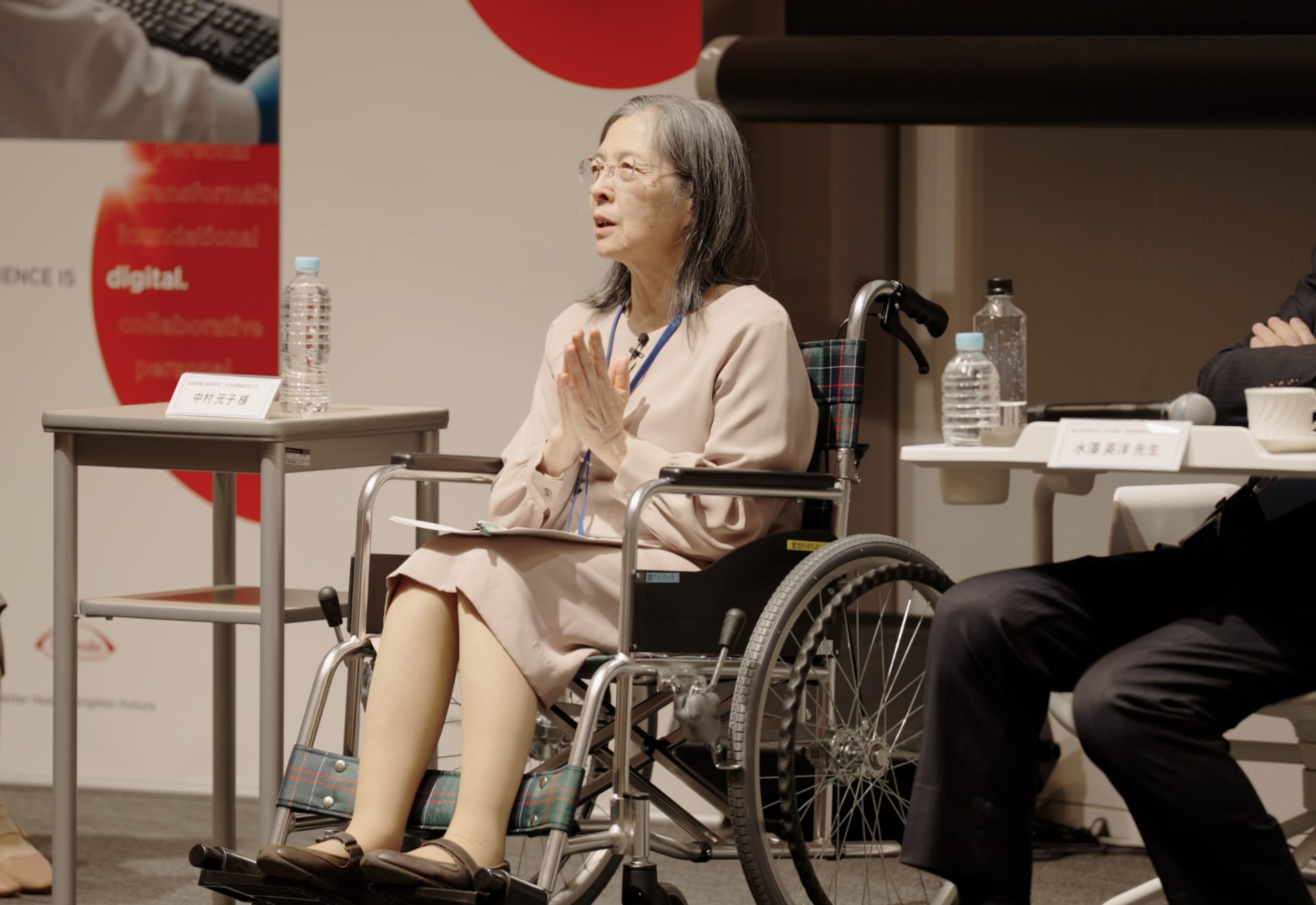Can wearable technology help in sleep disorder diagnosis? | Takeda Stories
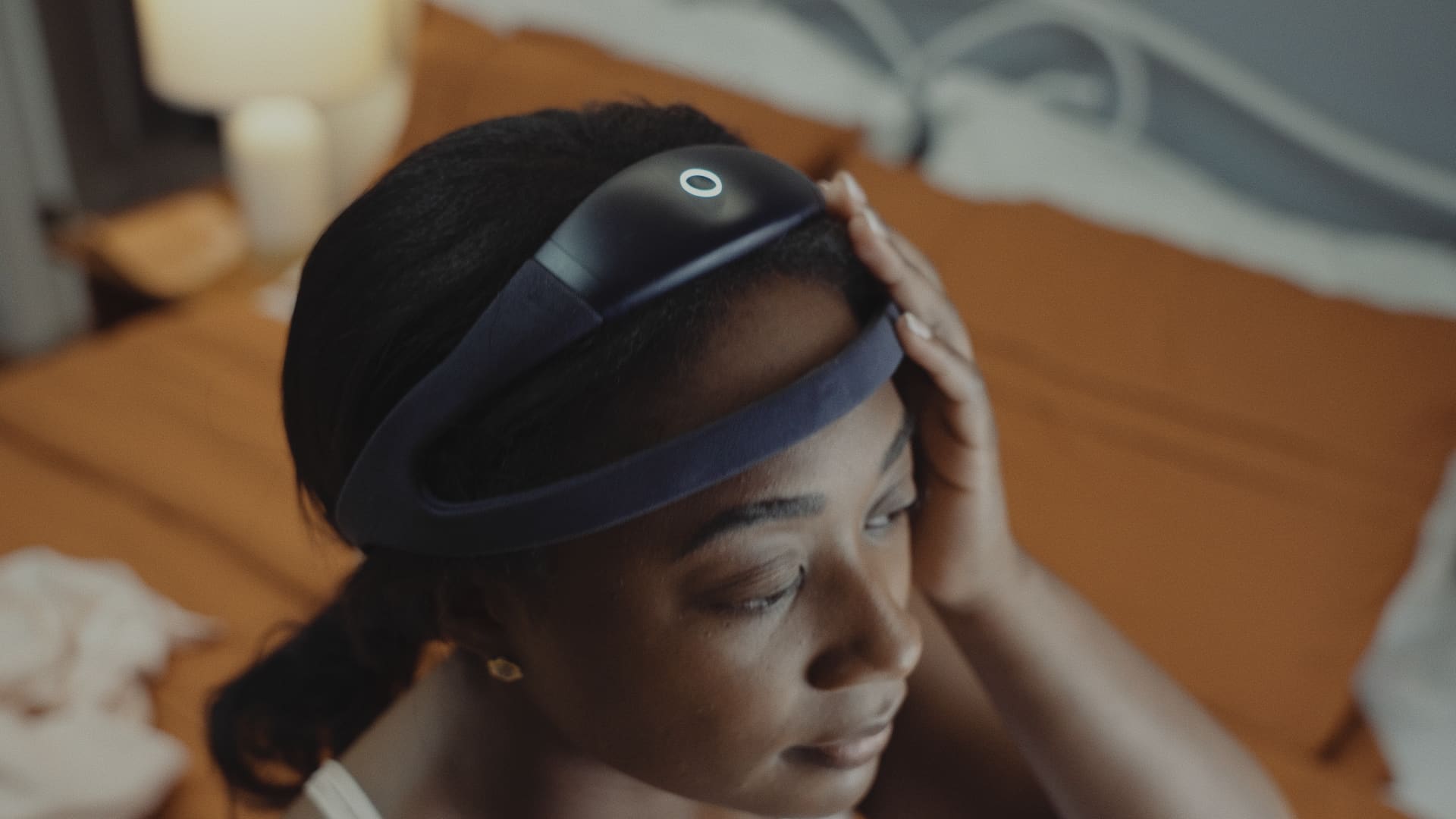
Can wearable technology help in sleep disorder diagnosis?
Photo provided by Beacon Biosignals
This article includes real-life patient experiences. Individual experiences may vary. This information is available to the general public for informational purposes only; it should not be used for diagnosing or treating a health condition or disease. It is not intended to substitute for consultation with a health care provider. Please consult your health care provider for further advice.
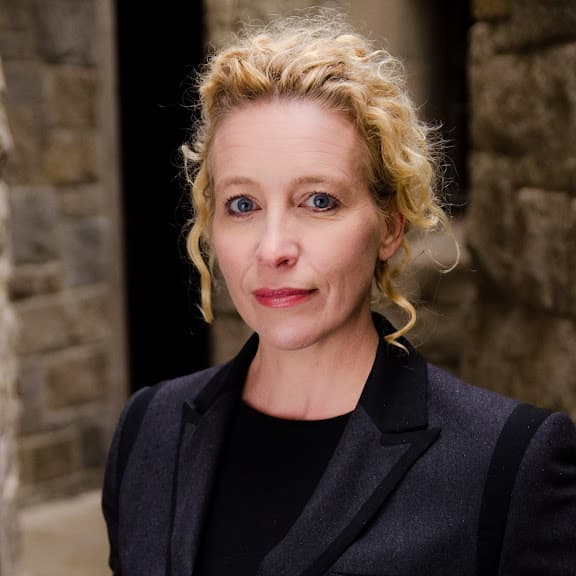
Claire Wylds-Wright, Co-Founder of Sleep Consortium
Through patient voices and innovative partnerships, we’re addressing barriers to diagnosis.
Claire Wylds-Wright is on a mission. She wants to expand knowledge about sleep disorders, to help those who live with conditions such as narcolepsy. And it’s not just about the medical symptoms she wants to help address; there is also the struggle to get an accurate diagnosis.
“This condition leads to severe daily impairments affecting lives in so many ways,” says Claire. She’s Co-Founder of Sleep Consortium*, a 501c3 dedicated to accelerating research in central disorders of hypersomnolence (CDoH), and she’s the mother of a daughter who has type 1 narcolepsy.
“Narcolepsy can be incredibly challenging even when it comes to everyday tasks,” she says. “There is a stigma around the disorder as others may not understand patients’ symptoms. On top of that, there is a mental health component as these patients can feel like they are perceived as lazy and misunderstood. Earlier and appropriate diagnosis could help alleviate some of these issues sooner.”
* Type 1 narcolepsy symptoms include: excessive daytime sleepiness, cataplexy (sudden loss of muscle tone when exhibiting strong emotions), disrupted nighttime sleep, hallucinations, sleep paralysis and cognitive impairment.
- It can take on average 15 years for a person to receive an accurate narcolepsy diagnosis1.
Claire says that while her daughter’s condition has been improved by treatment, her education, social life and overall happiness is still impacted. Claire calls for more solutions to expand clinical knowledge of this disorder, including addressing barriers to diagnosis.
Tackling the diagnostic challenge
Diagnosing narcolepsy and other sleep disorders is often delayed or incorrect because symptoms can be confused with other issues2 or thought to be just due to lack of sleep3. A diagnostic assessment usually involves people spending multiple nights at a sleep clinic, which can be challenging, particularly for those who are caregivers or who cannot easily take time off from work. In-clinic sleep testing is not always easily accessible or available based on geographic or capacity constraints. Also, these types of sleep studies are limited to data from a single night of sleep, which does not always reflect a patient’s real-world environment.
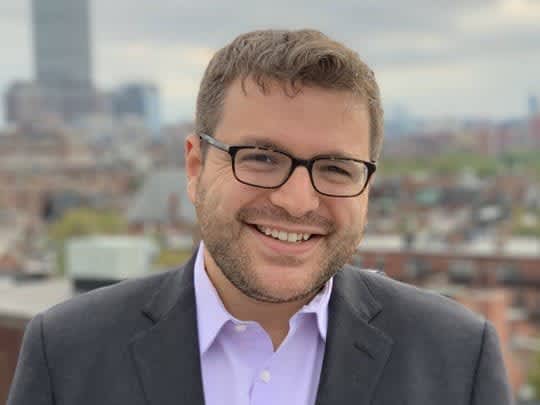
Jacob Donoghue, CEO and Co-Founder of Beacon Biosignals
"We launched Beacon with the conviction that brain data will unlock novel advancements in neurological and psychological diseases," explains Jacob Donoghue, MD, PhD, CEO and Co-Founder of Beacon Biosignals. “Wearable medical devices that acquire brain data in a patient-friendly way unlock crucial health information in everyday settings. We believe that this may lead to better-quality, longitudinal data and, ultimately, can help uncover hidden clues about this complex condition.”
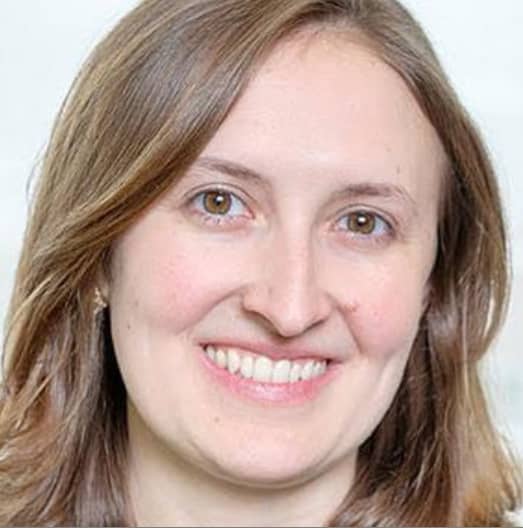
Julia Jackson, Takeda’s head of Digital Product Excellence.
Reducing patient burden, improving clinical knowledge
Lindsay Jesteadt, Co-Founder of Sleep Consortium, is excited by the opportunity ahead. “The digital health revolution really offers new ways to monitor and understand4 these conditions. You’ve got wearables, mobile health apps, and tools that can continuously track sleep patterns. They can track metrics, and all of these can help provide valuable information.”
Claire adds, "The addition of having a home device is a huge step to de-burdening the patient. Anything where you can empower the patient to take their information and comfort into their own hands and potentially give more accurate data - that is valuable in so many ways."
- Takeda is a corporate sponsor of Sleep Consortium
- Thorpy MJ, Krieger AC. Delayed diagnosis of narcolepsy: characterization and impact. Sleep Med. 2014 May;15(5):502-7. doi: 10.1016/j.sleep.2014.01.015. Epub 2014 Feb 15. PMID: 24780133.
- Telt sch DY, et al. Poster (P296) presented at: The 38th Annual Meeting of the Associated Professional Sleep Societies; June 1-5, 2024; Houston, TX, USA;
- Ohayon MM, et al. Sleep Med. 2021;84:405-414. doi: 10.1016/j.sleep.2021.06.008;
- Thorpy MJ, Krieger AC. Delayed diagnosis of narcolepsy: characterization and impact. Sleep Med. 2014 May;15(5):502-7. doi: 10.1016/j.sleep.2014.01.015. Epub 2014 Feb 15. PMID: 24780133.
Share this story

